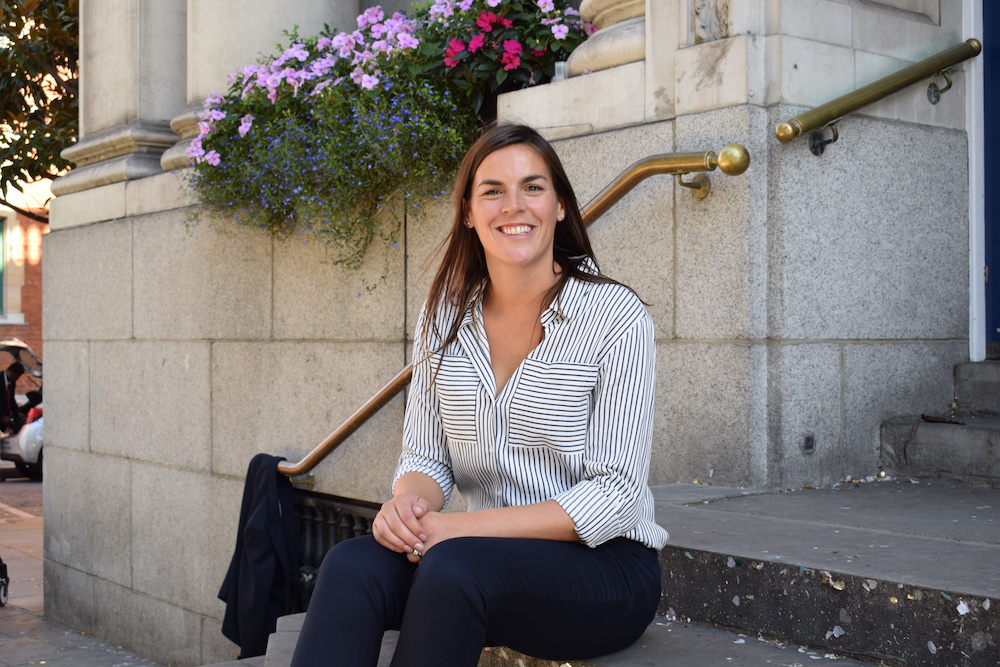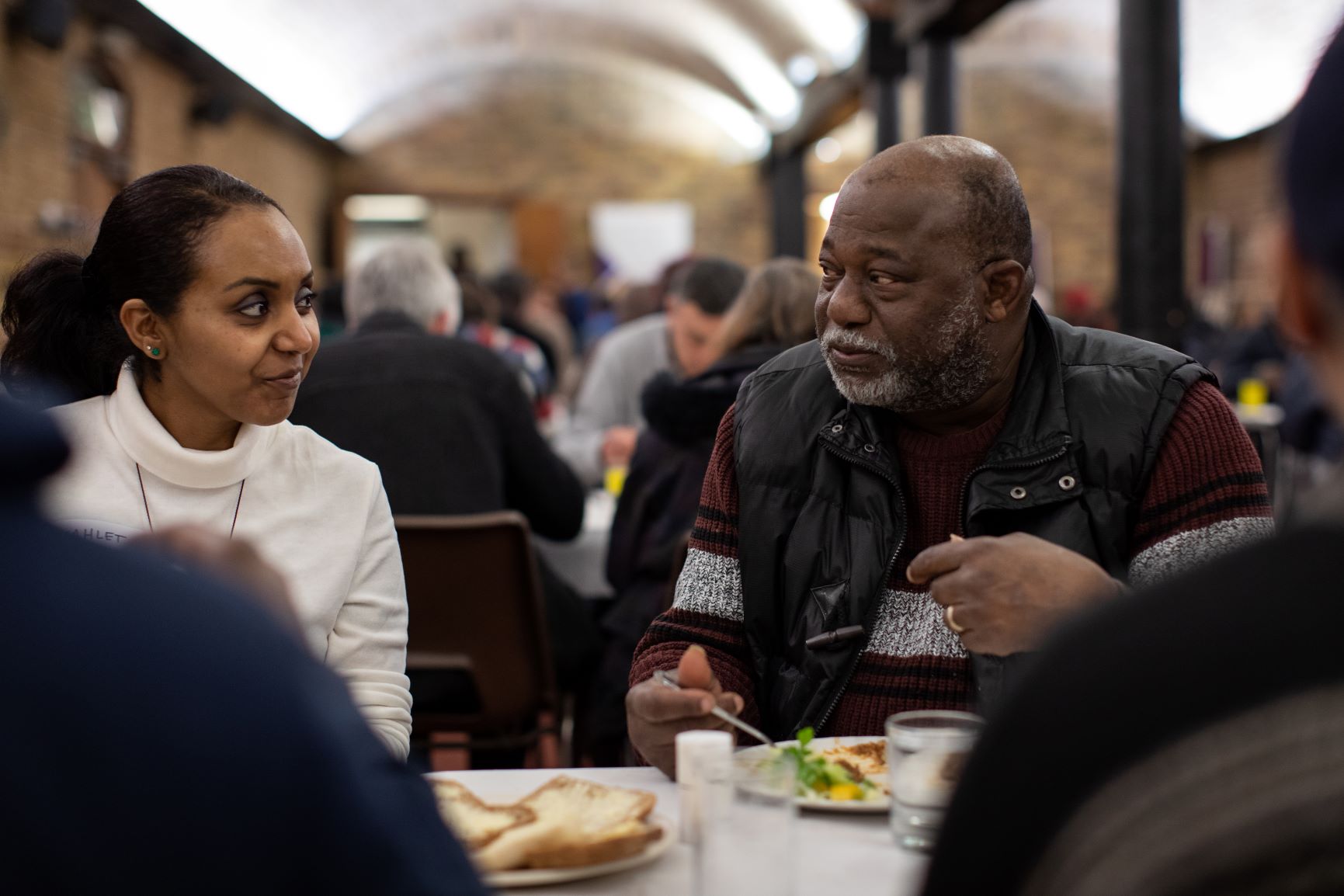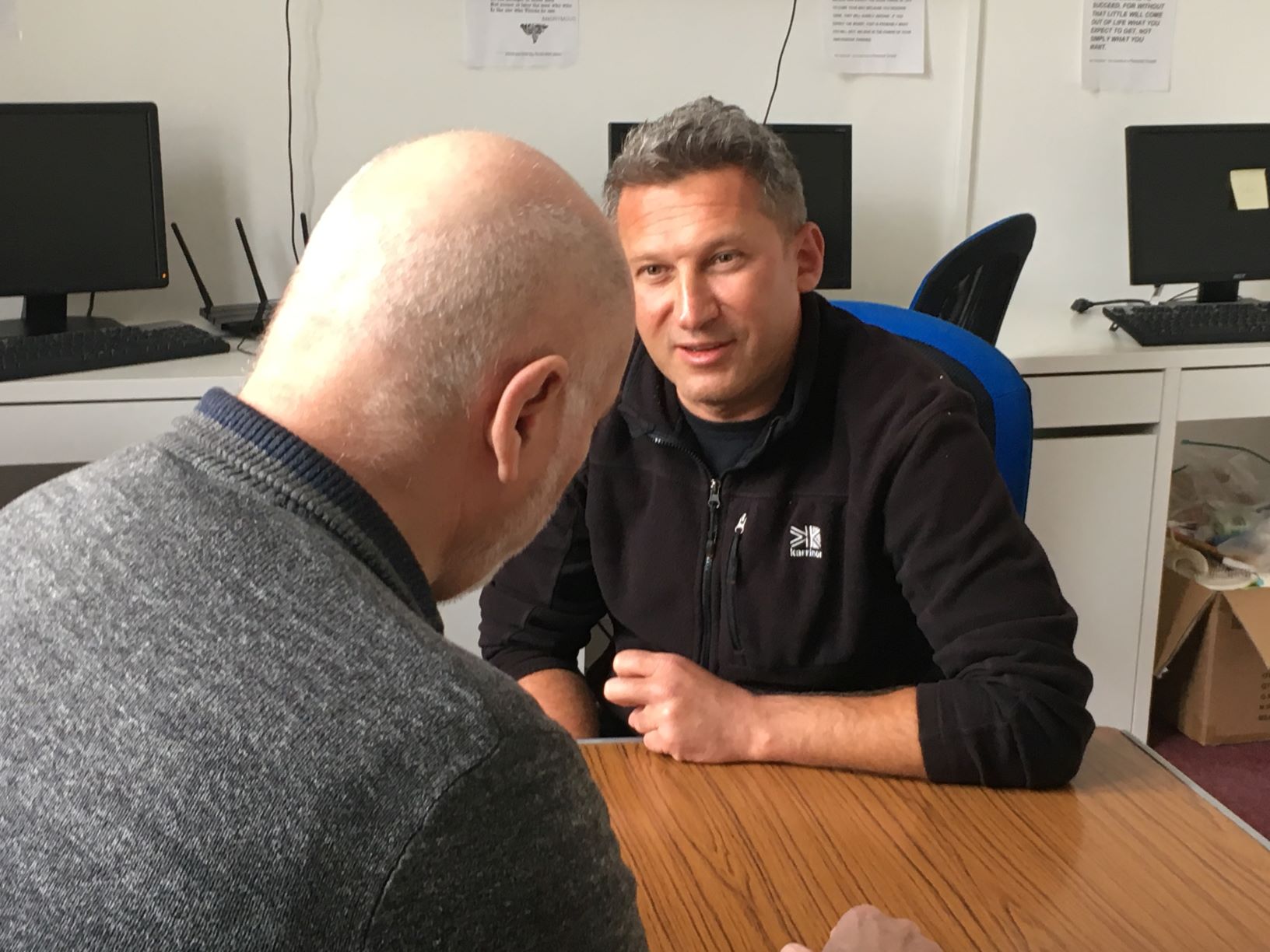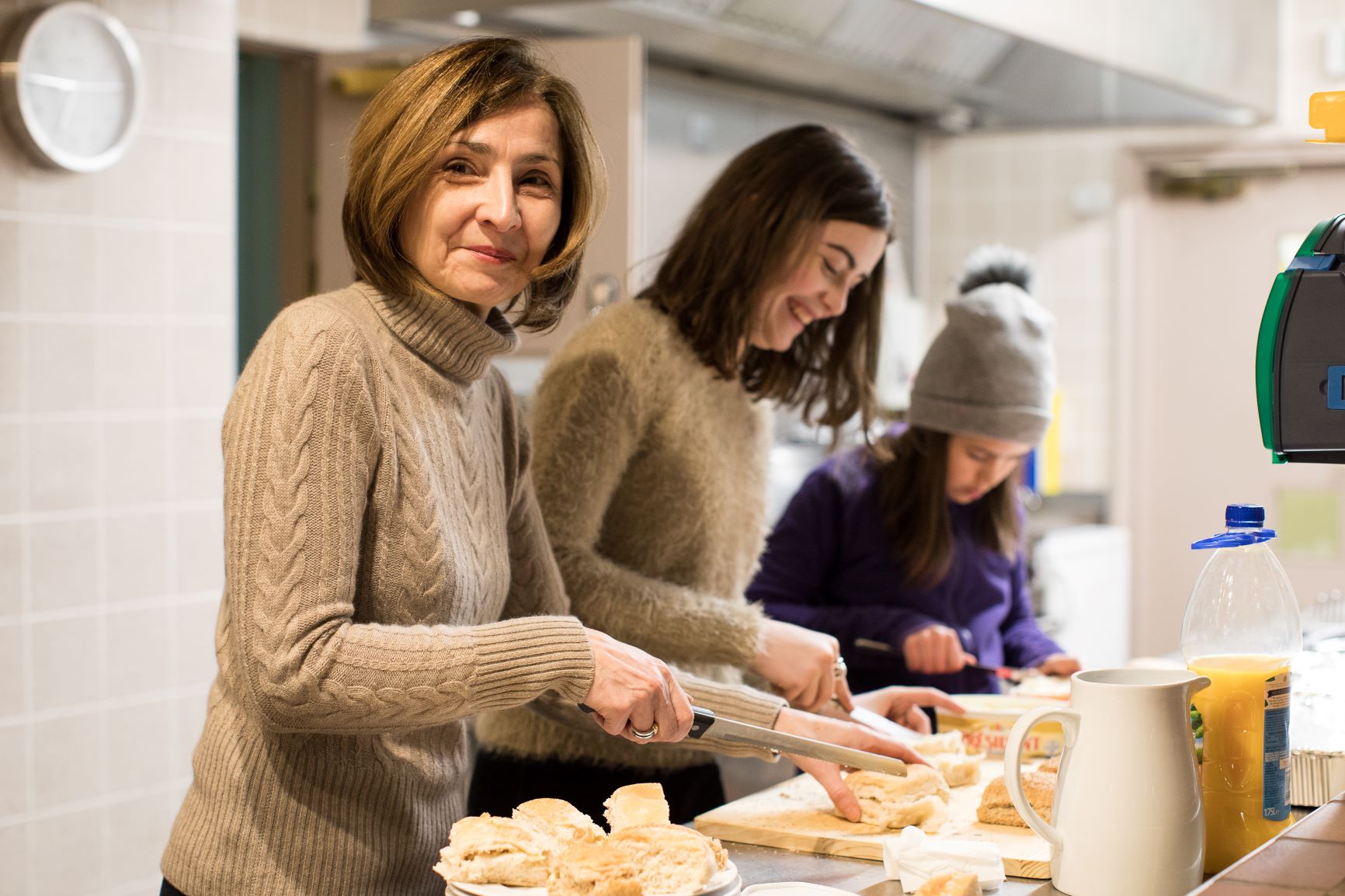Q&A with Lucy Abraham, CEO of Glass Door Homeless Charity
Chelsea Design Quarter (CDQ) is delighted to announce that we are holding our Autumn Raffle again this year, and that for the second year running it is in support of Glass Door Homeless Charity.
Glass Door provides London’s largest open-access network of emergency winter shelter and support services for men and women affected by homelessness. Their vision is of a future where no one has to sleep on the streets of London. Glass Door will be the recipient of 100% of the proceeds from the raffle being held by CDQ. You can find out more about the raffle, prizes and how to buy tickets here.
We were delighted to have the opportunity to interview Lucy Abraham, CEO of Glass Door, to learn more about the charity, the challenges they face and how this has been an especially challenging year.
(Please note due to COVID this interview was conducted via e-mail).

Lucy, thank you for taking the time to answer our questions. Why don’t you start by telling us a bit about your background and how you came to join Glass Door?
I’ve always been motivated by the idea that by working together, we could improve the way society is structured. After university – where I studied politics and philosophy – I went straight into the charity sector and worked for a range of charities, including the Lord Mayor’s Appeal and the cricket charity Chance to Shine.
I then spent five years in the public sector. Before joining Glass Door, I led teams delivering value for money studies at the National Audit Office as a qualified Chartered Accountant.
Joining Glass Door, I was keen to take the problem solving, analytical and leadership skills I learnt auditing the government and apply them to the problem of homelessness. To me, the underlying driving ethos remains the same: I’m interested in how we tackle societal problems and improve public life.
I maintained a connection to the charitable sector throughout, volunteering regularly for a couple of different homeless charities over the past few years. When I joined Glass Door in 2018, l felt as if I was returning home, equipped with a new set of tools.
What does the role of CEO involve? Is there such a thing as an average day?
Good question! I have overall responsibility for the various functions of the charity – from ensuring the operations are running smoothly to raising the money we need to deliver our services to managing the staff team. I’m also involved in working with the trustees to guide the long-term strategy and vision of Glass Door.
I think there’s no such thing as an average day! Some days you might find me buried in spreadsheets and policy documents in the morning, presenting at a local partnership meeting in the afternoon and out visiting a shelter in the evening. Another day I might be speaking to a journalist on the phone, running a strategy session with the team on zoom, or helping unload a donation of coats delivered to our offices.
We understand that Glass Door has a clear a focus on remaining open to all, what does this mean in practical terms?
This means that when someone turns to us looking for support, we can open the door, welcome them, and let them engage with our services when they are ready. Because we are funded via private donations, we don’t “cherry pick” and admit only those who we know will qualify for government support. Our guests – which is what we call people who turn to us — don’t need to show us identity documents before we offer them a meal or a hot cup of tea. This gives people the space and time to develop trust. It makes all the difference.

It must be a huge operation to open and maintain the different shelter sites. How does that work on a day to day basis?
Our shelters have been going for 21 winters now, so it’s become a well-oiled machine. The volunteers do so much. For example, volunteers organise cooking rotas, do much of the meal planning and shopping for food. They also set tables and make the space look welcoming.
Our staff will put supplies needed – like sleeping bags, sleeping mats, breakfast food, cleaning supplies, first aid kits, basically everything needed to run a shelter – in a van, which then gets unpacked and packed up again every day. Our staff are on hand to register guests when guests enter and to ensure everyone is safe overnight.
But this year we will have a whole new set of protocols to figure out. Due to risk of contagion from Covid-19 in shelters, we will be providing people who would otherwise be sleeping rough with individual rooms in hostels, and we’ll be providing three meals a day and staff around the clock. But this is a more expensive model to run, and we expect to have about half the number of spaces we had last year in the church-based shelters.
The shelter venues will be converted into dinner-only service, so people in the community who can’t find a space in the single-room service can still find a meal and access support. And our plan is to allow people to sleep in the spaces overnight again when it is safe to do so.
We know that in addition to providing shelter throughout the winter months your team also includes a number of caseworkers to help your guests with a range of different things – perhaps you could tell us a bit more about this side of your work?
We think it is really important to offer people the opportunity to move beyond homelessness, and the casework service have had tremendous success supporting people with anything and everything they might need to help them do this.
Some people may just need help opening a bank account so that they can start depositing paycheques and saving money for a deposit. Others may need support to replace identification documents that have been lost or stolen, help to find work, and a signpost to access health care or other specialist support around mental health, for example.
Our team are experts in finding routes out of homelessness for people who have been rejected from finding support everywhere else. They give people time to develop trust, and we work with everyone in an individualised, tailored way. Last year, we supported 243 different people into housing. And once they are off the streets, we stay in touch and help make sure they stay in housing.

There are some shocking statistics around homelessness. How do you think these will be affected by the current pandemic?
I am extremely worried. Our team are bracing ourselves for what we expect will be a huge upsurge in people needing our services. We know many people will be losing their jobs, and their homes will follow. We’re already seeing people turning up at our offices and calling in to find support because they’ve been made homeless because of the pandemic.
This could be our toughest winter yet. That’s why we are doing all we can to offer vital shelter, food and support in new ways this winter.
How has your team had to adapt in the recent months?
We have made lots of adaptations.
One of the first things we had to do back in March was adapt our night shelters to ensure our guests, staff and volunteers were kept safe until we were able to support our guests into the hotels which were made available under “Everyone In”.
We quickly realised that there were some simple things we could do to assist those we support through lockdown, such as giving them bottled water and pay-as-you go phones, which have made it much easier for us to keep in contact with people.
We’ve of course adapted our offices with one-way systems, screens and other protective measures to make it safe for those who we do continue to support through face-to-face contact.
And we’ve had to completely redraft our winter shelter model. It’s been a huge logistical challenge. But being the largest provider of open-access support services for people who are homeless, we have a moral imperative to adapt. Otherwise, hundreds of people will have nowhere else to go.

In addition to entering the CDQ Raffle how else can people get involved and support Glass Door?
First of all, we are deeply grateful for support from everyone who is involved in the raffle: the wonderful companies and individuals who donated items, sell tickets and of course: we are massively appreciative of everyone who purchases a ticket.
We are very lucky to have committed volunteer teams, but this year, we are reducing the roles of volunteers to minimise the risk of contagion. But I do recommend anyone interested in getting involved follow our website (www.glassdoor.org.uk) and social media channels (@glassdoorlondon on Twitter, Facebook and Instagram). We list ways to get involved there. Right now, we are asking people to make and donate masks for example.
One very tangible way people can support us financially is by sponsoring a room for the night this winter. It will cost the charity just over £30 to provide emergency shelter for someone in an individual room with three meals a day this winter.
And we expect to have some exciting new programmes that people will be able to support in the coming months. Please do get involved – you can sign up to our newsletter on our website.
And finally, can you tell us about any success stories or events which particularly stand out in your mind?
Everyone has a different story. I’ve met people from all different backgrounds. I suppose it can be the ones who remind us of someone we know that can affect us deeply. I’ve met people who owned successful businesses, who speak many languages, who are clearly well-read and articulate. And I’ve met women who have been through the ringer with abusive relationships. All these people had a series of events that went terribly wrong, and society has failed to provide the support they need to get back on their feet. The gaps in the social safety net have been growing in the past decade, and homelessness has more than doubled in that time.
One person does stand out, not because he reminds me of anyone, but because it shows that anyone can turn their life around. The gentleman I am thinking about now actually works for us. But before that he was a guest of our shelters, and before that he was homeless for 26 years and almost died of hypothermia one winter. He says: ‘It was the kindness of strangers that made me believe that a different sort of future was possible.” And that’s a great reminder that so often, it’s the little things that make a difference: kindness matters.

